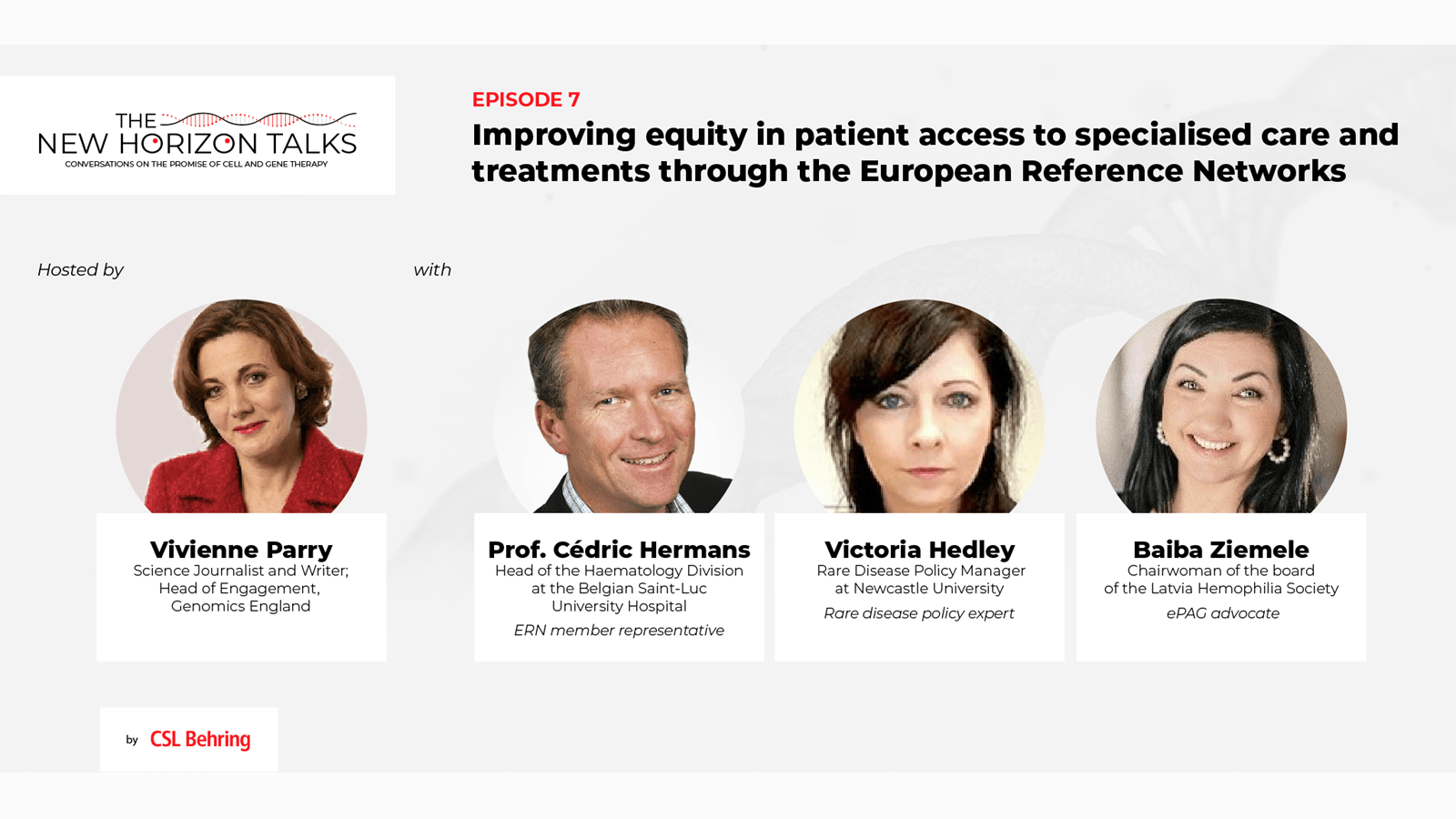On the occasion of Rare Disease Day, the New Horizon Talks podcast looks at European Reference Networks (ERNs), a key European initiative that contributes to fostering equity in patient access to specialized care for rare diseases, including diagnosis and treatment.
To explore how these virtual expert networks contribute to equity, current challenges and opportunities to enhance their role, the Episode 7 brought together Cédric Hermans, Head of the Haematology Division at the Belgian Saint-Luc University Hospital and ERN member representative; Victoria Hedley, Rare Disease Policy Manager at Newcastle University; and Baiba Ziemele, Chairwoman of the Board of the Latvia Hemophilia Society and ePAG advocate.
CSL Behring, a leading biotech company that develops medicines for rare and serious diseases, launched the podcast series in 2021 to feature discussions about cell and gene therapy among leading researchers and advocates and policy stakeholders.
Highlighting some of the ERNs’ successes to date, Baiba Ziemele said that “a major achievement has been their capacity to spread awareness on rare diseases, including among doctors. For patients from smaller countries such as Latvia, ERNs have given us the opportunity to get access to specialists and expertise that are not available at home.”
Experts also welcome the increased visibility of ERNs among stakeholders, including payers, patient associations or individual patients, who are all starting to acknowledge ERNs as structures capable of improving access to care.
Equity has multiple facets, which ERNs already contribute to or can contribute to. Equity should apply not only to patients but also to health professionals who are entitled to continuously build up their own knowledge and expertise. Further, equity can have a different meaning, depending on whether it is envisioned through the prism of equity across countries or equity between patients, the experts said.
A particular challenge is to make sure that all rare diseases have a home across the 24 ERNs, said Victoria Hedley, who contributed to the Rare2030 project. “We know that there are major unmet needs with 95% of rare diseases for which no dedicated treatment exists. To increase the chances of all patients to have access to meaningful therapies, we need to shift the focus away from prominent rare disease conditions towards ‘neglected’ diseases within ERNs.”
All three experts also agreed that some of the responsibilities ERNs have are still under-developed, especially when it comes to research and their capacity to capture, standardize and reuse data.
“From a research perspective, registries are critical in a field like inherited bleeding diseases in order to merge the data, especially for professionals working in small countries. Only by aggregating data at the European level can we have enough patients and information to conduct reliable and successful studies,” said Cédric Hermans, who provided insights from EuroBloodNet, the European Reference Network focused on rare hematological diseases.
Greater multi-stakeholder collaboration could be a game changer to address current gaps and strengthen the ERNs – and policies can support this effort.
"Collaboration with the industry is essential in contexts such as new drug development,” said Victoria Hedley. “In general, multi-stakeholder collaboration is key and ERNs should also work with actors such as national authorities given their propensity to contribute to registries,” she added.
Discussing concrete solutions that can enhance the ERNs, experts conclude that the future looks bright, in particular when it comes to registries and real-world data generation. An EU action plan on rare diseases or the European Health Data Space will be critical to turn opportunities for change into reality, they said.



